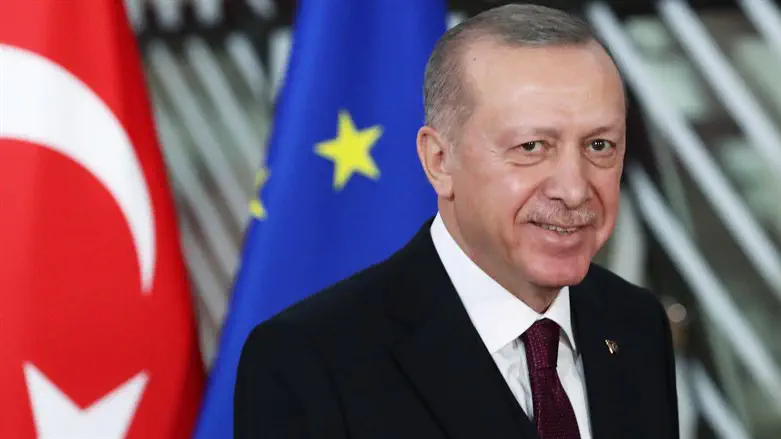
The dissolution of the Kurdistan Workers' Party (PKK) as a coherent armed entity marks a pivotal shift in Middle Eastern geopolitics. While Ankara may herald this as a national triumph, the ramifications extend well beyond Turkish borders. For Israel, a democratic state with a long-standing imperative to secure itself against rising regional threats, the collapse of the PKK is not a simple win for regional stability. Rather, it signals a profound reshaping of the strategic environment—one that demands urgent reassessment and recalibrated responses.
For decades, the PKK acted as a domestic constraint on Turkey’s geopolitical aspirations. With military resources and political bandwidth tied down in southeastern Turkey and northern Iraq, Ankara’s external reach was, if not restrained, at least tempered. That restraint is now gone. Turkey, unencumbered and emboldened by the demise of a longstanding internal foe, can pivot fully to its broader regional ambitions—ambitions that increasingly run counter to Israeli interests.
Under President Erdoğan, Turkey has embraced a vision that blends neo-Ottomanism with assertive political Islamism. This ideological shift is manifesting in aggressive posturing across the Eastern Mediterranean, the Red Sea, and the Levant. Israel, which values predictability, secular governance, and Western alignment in its regional partners, now faces a neighbor whose foreign policy is not only increasingly independent but openly adversarial. Ankara’s vocal support for Hamas and its escalating anti-Israel rhetoric underscore this hostile trajectory.
The removal of the PKK from the battlefield also removes a key variable in Israel’s strategic calculations. While Israel never viewed the PKK as an ally, the group's existence complicated Turkish efforts to dominate Kurdish regions in Syria and Iraq—areas of significant Israeli security interest. Kurdish communities, particularly those with secular or non-Islamist leanings, have historically served as informal buffers or proxies in a region riddled with Iranian influence and Sunni Islamist expansionism.
With the PKK neutralized, Turkey now has greater freedom to expand its military and ideological footprint in areas bordering Israel’s northern front. This could embolden Turkish-backed Islamist militias, destabilize Kurdish autonomy in northern Syria (which has tacitly cooperated with Western forces), and create openings for Israel’s enemies to operate more freely. The threat is not merely territorial—it is ideological, systemic, and potentially existential.
Turkey’s departure from NATO norms—highlighted by its acquisition of Russian S-400 missile systems and obstructionist behavior in alliance politics—further complicates matters. For Israel, which enjoys robust ties with many NATO members and relies on strategic coherence among Western allies, Turkey’s rogue trajectory undermines collective security. An emboldened Turkey could leverage its NATO membership to frustrate Western-Israeli initiatives, all while cultivating deeper ties with Iran, Qatar, and other adversaries.
Moreover, Ankara’s unpredictable behavior undermines anti-terror operations and disrupts coordination with Kurdish forces, particularly in Syria, who have proven vital in containing ISIS. These same forces, while no formal allies of Israel, have represented a secular and stabilizing counterweight to both Islamist radicals and Iranian proxies. Turkey’s expanded operational freedom risks eliminating this balance.
The ideological implications of the PKK’s defeat are also stark. The group, for all its flaws, maintained a resolutely secular, Marxist orientation. Its suppression could pave the way for a broader Islamist resurgence, not just politically but militarily. This trajectory aligns disturbingly with Ankara’s regional narrative, which increasingly couches geopolitical disputes in civilizational, anti-Western terms.
For Israel, a liberal democracy anchored in Western values, this ideological shift presents a serious threat. Turkey’s active support for Islamist movements and its framing of the Israeli-Palestinian conflict in absolutist, religious terms deepen polarization and fuel extremism. The risk is not just that Israel faces greater operational threats on its borders—but that the ideological battle for the soul of the region tips further against secular, democratic forces.
The collapse of the PKK should not lull Israel or its allies into complacency. On the contrary, it should sharpen their strategic vision. Turkey, liberated from internal distractions, is now positioned to act with greater assertiveness—and in ways that may directly challenge Israel’s security, partnerships, and values. What Ankara frames as a domestic victory is, in effect, the opening act of a broader geopolitical reorientation.
Israel must now push for a comprehensive reassessment of Western engagement with Turkey. At the same time, it should redouble support for regional actors—particularly secular and non-Islamist communities—who share its vision for a stable, pluralistic Middle East. The road ahead demands vigilance, cohesion among democratic allies, and the courage to confront a regional reality in which old constraints have vanished, and new threats are rising unchecked.
Amine Ayoub, a fellow at the Middle East Forum, is a policy analyst and writer based in Morocco. Follow him on X: @amineayoubx
